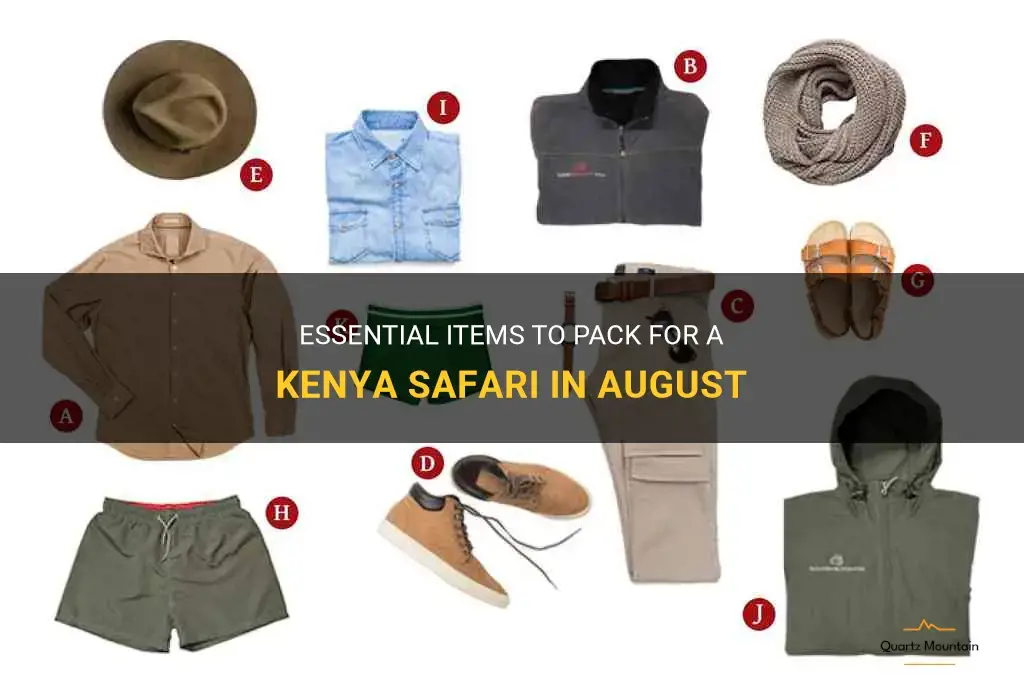
Are you planning a Safari in Kenya this August? Congratulations! You're in for a treat. Kenya offers an unmatched experience for wildlife enthusiasts, with its diverse ecosystems and abundant wildlife. To make the most of your Safari adventure, it's essential to pack the right items. From sturdy walking shoes to insect repellent, we've compiled a list of essential items that will ensure a comfortable and enjoyable experience during your Kenya Safari in August. So buckle up, as we guide you through the must-have items for an unforgettable adventure.
What You'll Learn
- What type of clothing should I pack for a Kenya safari in August?
- Are there any specific items that are essential to bring on a Kenya safari in August?
- Should I pack any specific accessories or gear for a Kenya safari in August?
- Is there any special consideration for footwear when packing for a Kenya safari in August?
- Are there any specific items that I should avoid packing for a Kenya safari in August?

What type of clothing should I pack for a Kenya safari in August?
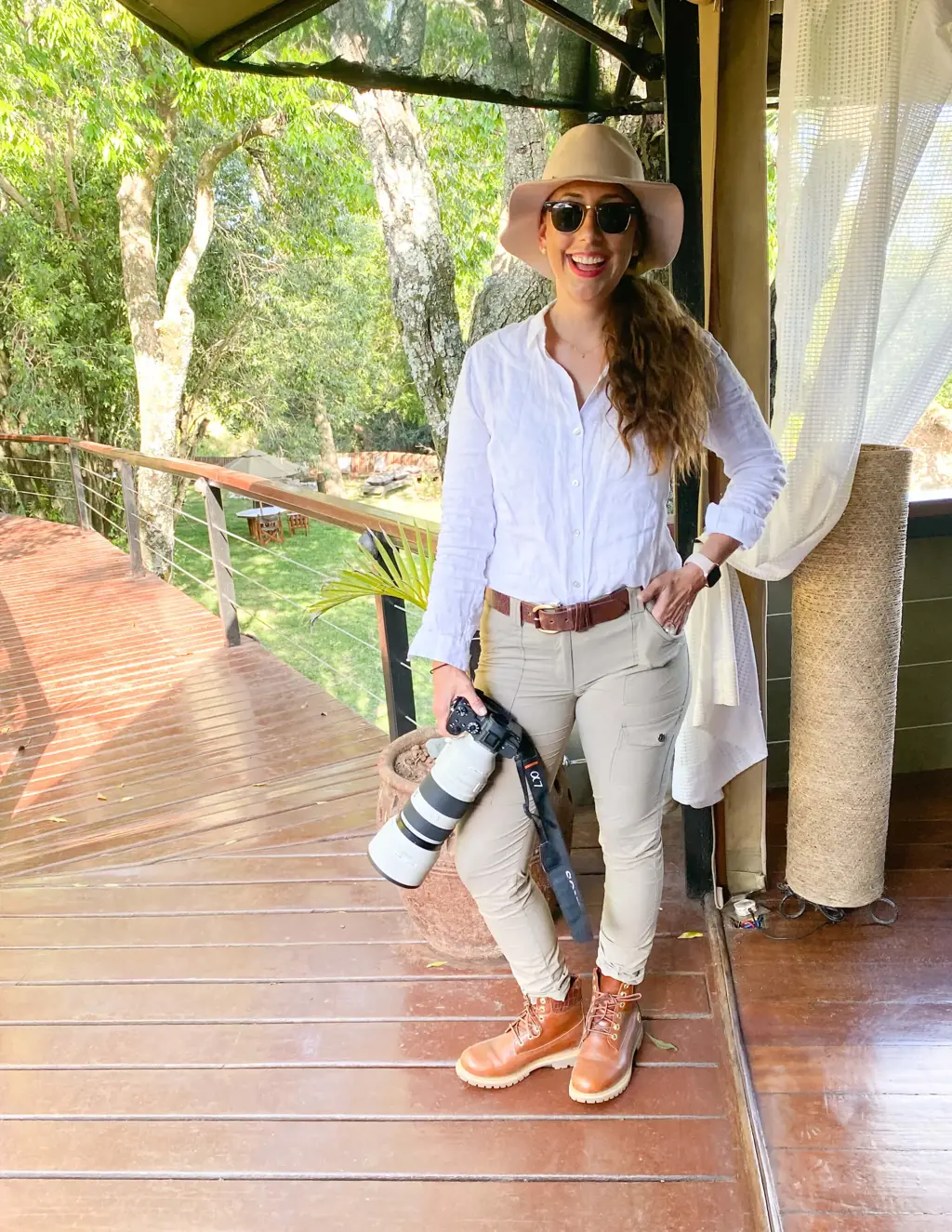
Are you planning a safari adventure in Kenya in August? If so, you're in for a remarkable experience! However, it's crucial to pack the right clothing to ensure your comfort and enjoyment during your safari. In this article, we will guide you on what type of clothing you should pack for a Kenya safari in August, taking into account the weather, practicality, and cultural considerations.
Weather Conditions in Kenya in August:
August is part of Kenya's dry season, particularly in popular safari destinations like Maasai Mara National Reserve and Amboseli National Park. During this time, the weather is generally warm during the day, with temperatures ranging from 20 to 25 degrees Celsius (68 to 77 degrees Fahrenheit). However, it's important to note that temperatures can drop quite significantly at night, so layering is essential. The evenings and early mornings can be chilly, with temperatures dropping to around 10 degrees Celsius (50 degrees Fahrenheit).
Practical Clothing Choices:
When it comes to safari clothing, comfort and practicality should be your top priorities. Here are some essential items to pack:
- Lightweight and Breathable Clothing: Opt for lightweight and breathable fabrics like cotton and linen. These materials allow your skin to breathe, keeping you cool during hot days.
- Long-Sleeved Shirts and Trousers: Long-sleeved shirts and trousers will protect your skin from the sun, as well as mosquitoes and other insects. Look for clothing made from lightweight and quick-drying fabrics.
- Safari Vest or Jacket: A safari vest or jacket with multiple pockets is essential for carrying small items like sunscreen, insect repellent, or your camera. It also adds an extra layer of warmth during cooler mornings and evenings.
- Closed-Toe Shoes: Comfortable closed-toe shoes or lightweight hiking boots are the best footwear choices for a safari. They protect your feet from thorns, rocks, and insects while providing stability and support during walks and game drives.
- Safari Hat and Sunglasses: Protect yourself from the sun by wearing a wide-brimmed hat and polarized sunglasses. These will shield your face and eyes from the sun's rays, ensuring comfort during long hours spent outdoors.
Considerations for Cultural Sensitivity:
While comfort and practicality are important, it's also essential to respect the local culture and traditions. While on safari in Kenya:
- Dress Modestly: Kenya is a conservative country, and it's respectful to dress modestly, especially when visiting local communities or religious sites. Avoid wearing revealing or provocative clothing.
- Avoid Bright Colors and Camouflage: Bright colors can startle or disturb wildlife, so it's best to wear neutral tones like khaki, beige, or olive green. Additionally, wearing camouflage clothing is illegal in Kenya, as it is often associated with military personnel.
- Respect Local Customs: In some communities, it is customary for women to wear skirts or dresses that cover their knees. When interacting with locals, it's important to respect their customs and dress appropriately.
Examples of Safari Clothing Packing List for August:
- Lightweight, long-sleeved shirts
- Trousers or safari pants (avoid jeans as they can be heavy and uncomfortable)
- Shorts for warmer days
- Safari vest or jacket
- Closed-toe shoes or lightweight hiking boots
- Wide-brimmed hat
- Sunglasses
- Swimsuit (some lodges and camps have swimming pools)
- Socks and underwear (moisture-wicking fabric is ideal)
- Light sweater or fleece for cooler evenings
- Scarf or bandana for dust protection
- Insect repellent
- Sunscreen
- Binoculars
- Camera equipment and extra batteries
- Small daypack for carrying essentials during game drives
Remember, packing light is key for a safari trip, as you may have weight restrictions for domestic flights or limited storage space in safari vehicles. Focus on versatile, functional, and comfortable clothing items that can be easily layered and mixed and matched.
By following these guidelines, you'll be well-prepared for a Kenya safari in August. Enjoy the breathtaking landscapes, incredible wildlife, and cultural encounters that make a safari in Kenya truly unforgettable!
Essential Items to Pack for Your Trip to Maui
You may want to see also

Are there any specific items that are essential to bring on a Kenya safari in August?
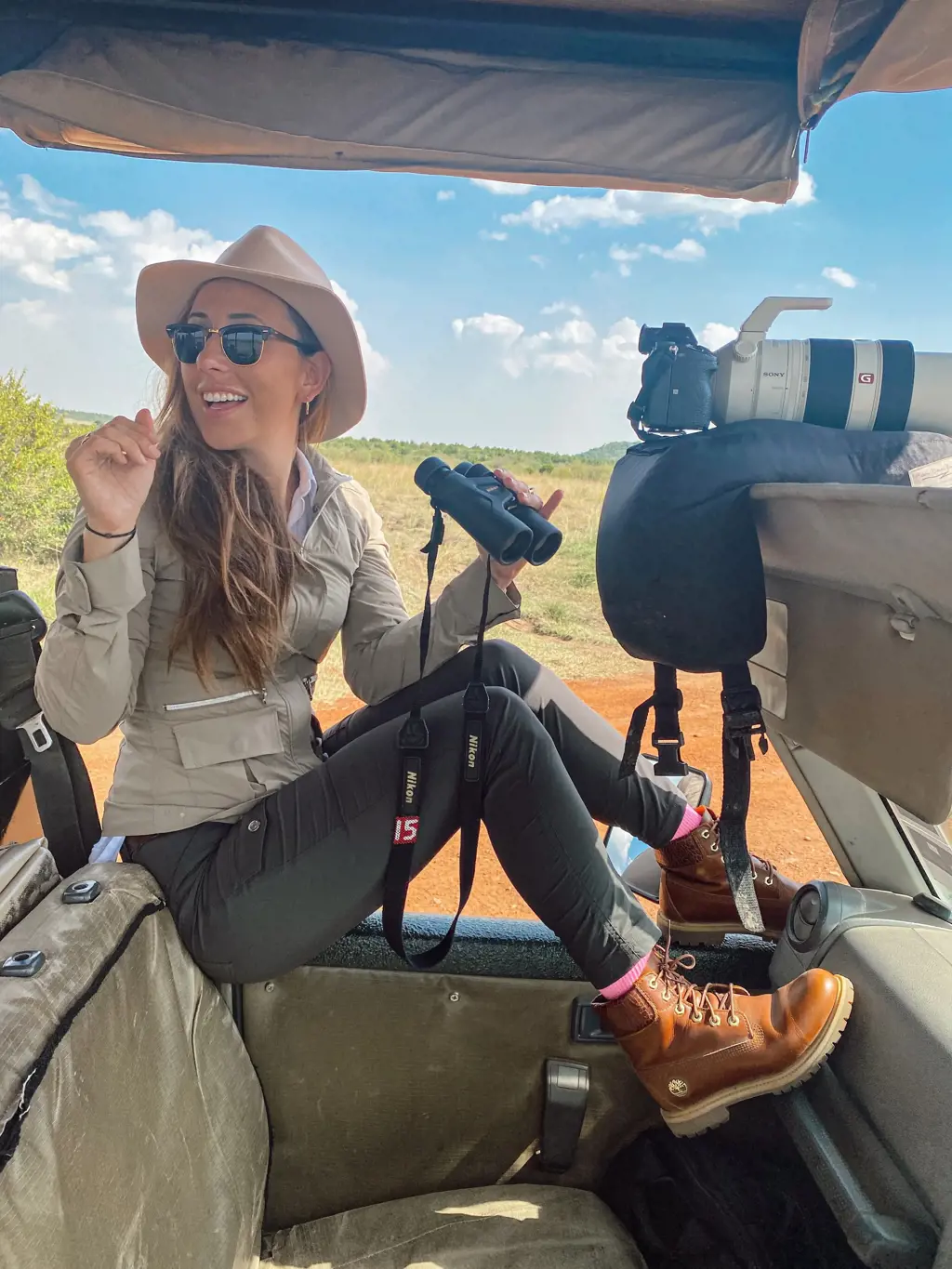
When embarking on a Kenya safari in August, there are certainly some specific items that are essential to bring along to ensure a comfortable and enjoyable experience. The month of August is in the dry season in Kenya, so it is important to pack accordingly.
First and foremost, it is crucial to pack appropriate clothing for the safari. In August, temperatures can reach highs of around 25-30 degrees Celsius (77-86 degrees Fahrenheit), so lightweight and breathable clothing is a must. Opt for comfortable and loose-fitting clothing made of natural fabrics such as cotton, as these materials help to regulate body temperature and wick away moisture. It is also advisable to pack long-sleeved shirts and pants to protect against sunburn and insect bites.
Along with clothing, it is essential to bring appropriate footwear for a Kenya safari. As you will likely be spending a significant amount of time on your feet, comfortable walking shoes or hiking boots are a must. Choose footwear that provides good support and has a sturdy grip, as you may encounter uneven terrain and potentially muddy areas.
Protection from the sun is crucial while on safari. Pack a sun hat or cap to shield your face and neck from the sun's rays. Additionally, bring a good quality sunscreen with a high SPF rating to protect your skin from harmful UV radiation. Sunglasses with UV protection are also essential to protect your eyes from the intense African sun.
In terms of personal items, it is important to bring insect repellent to ward off mosquitoes and other biting insects. Look for a repellent that contains DEET or another effective active ingredient. It is advisable to apply the repellent regularly, especially in the early morning and late afternoon when mosquitoes are most active.
A good quality camera is essential for capturing the incredible wildlife and stunning landscapes you will encounter on your safari. Make sure to bring extra memory cards and batteries to ensure you never miss a photo opportunity. It is also a good idea to bring a waterproof bag or case to protect your camera from dust and moisture.
Lastly, don't forget to bring binoculars to enhance your wildlife viewing experience. Many of the animals you encounter on safari will be at a distance, so having a pair of binoculars allows you to observe them in greater detail. Look for lightweight and compact binoculars that are easy to carry around.
In conclusion, when embarking on a Kenya safari in August, it is important to pack appropriate clothing, footwear, and protection from the sun and insects. Don't forget your camera and binoculars to enhance your safari experience. By packing these essential items, you will be well-prepared to enjoy all that Kenya has to offer during this incredible adventure.
Essential Items to Pack for a Successful Swimming Gala
You may want to see also

Should I pack any specific accessories or gear for a Kenya safari in August?
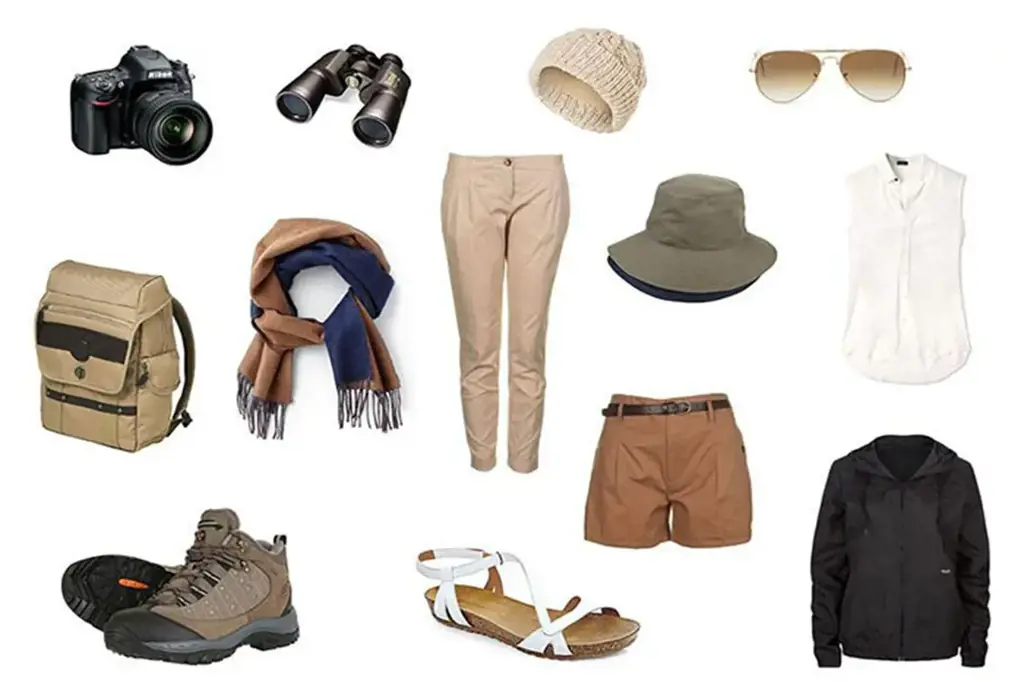
August is a fantastic time to embark on a safari adventure in Kenya. With the dry season in full swing, wildlife congregates around water sources, making it easier to spot them. When planning for a Kenya safari in August, it is essential to pack the right accessories and gear to ensure a comfortable and enjoyable experience. Here are some recommendations:
- Binoculars: A good pair of binoculars is a must-have for any safari. It allows you to spot animals from a distance and observe their behavior without disturbing them. Look for binoculars with a high magnification and a wide field of view for the best wildlife viewing experience.
- Camera and lenses: Capture the stunning landscapes and incredible wildlife sightings with a high-quality camera and a range of lenses. A telephoto lens will help you zoom in on distant animals, while a wide-angle lens is perfect for capturing sweeping panoramic shots of the savannah.
- Power bank: Keep your electronic devices charged throughout your safari by bringing a reliable power bank. This is especially important if you plan on using your camera or smartphone for extended periods.
- Flashlight or headlamp: A flashlight or headlamp is essential for walking around at night, whether it's within your camp or during evening game drives. Look for one with a long battery life and adjustable brightness settings.
- Safari clothing: Pack lightweight, breathable, and neutral-colored clothing to blend in with the natural surroundings. Opt for long-sleeved shirts and pants to protect yourself from the sun, insects, and thorny vegetation. Don't forget a wide-brimmed hat, sunglasses, and a bandana or scarf to protect your face and neck.
- Comfortable footwear: A sturdy pair of walking shoes or hiking boots are essential for exploring on foot. Choose shoes with good ankle support and a grippy sole to navigate uneven terrains.
- Sunscreen and insect repellent: Protect yourself from the harsh sun and pesky insects by packing sunscreen with a high SPF and a reliable insect repellent. Consider a repellent with DEET or picaridin for maximum effectiveness.
- Medications and first aid kit: It is always advisable to carry any necessary medications and a compact first aid kit. Include items such as antihistamines for allergies, pain relievers, adhesive bandages, antibiotic ointment, and any other personal medications you may need.
- Water bottle and purifier: Staying hydrated is crucial during a safari. Bring a reusable water bottle and a water purifier or purification tablets to ensure a constant supply of safe drinking water.
- Maps and guidebooks: Even if you have booked a guided safari, having maps and guidebooks on hand can enhance your overall knowledge and understanding of the wildlife and landscapes you encounter.
Remember to check with your tour operator or safari camp for any specific recommendations or restrictions. By packing these accessories and gear for your Kenya safari in August, you'll be well-prepared to make the most of your wildlife encounters and create lasting memories.
Creating a Nut-Free Lunch: Essential Packing Guide
You may want to see also

Is there any special consideration for footwear when packing for a Kenya safari in August?
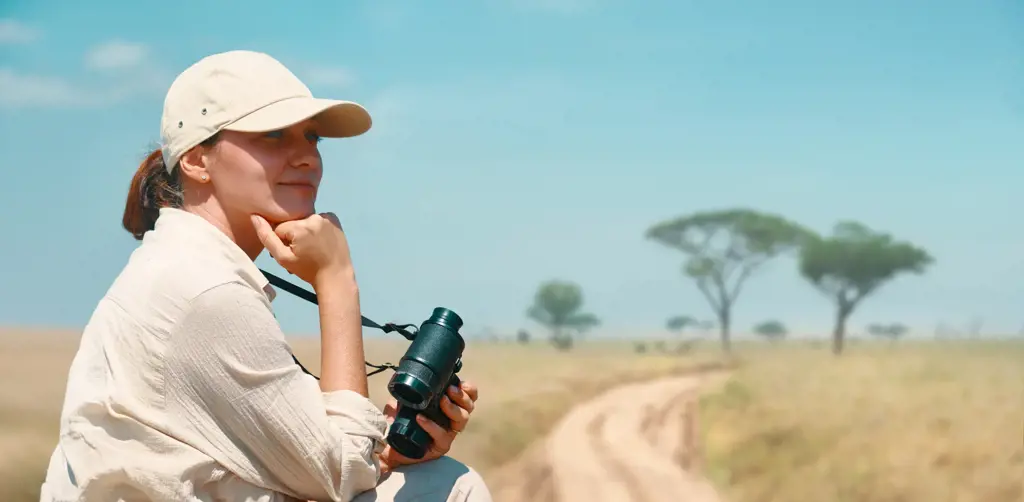
When packing for a Kenya safari in August, it is important to consider the type of footwear you will need for your adventure. The weather and terrain in Kenya can vary greatly, so having the right shoes is essential for a comfortable and enjoyable trip.
Firstly, it is important to pack sturdy and comfortable footwear that provides good support for your feet. Kenya is known for its diverse landscapes, including grasslands, mountains, and dry savannahs. You may find yourself walking on uneven terrain or through brush and vegetation, so it is essential to have shoes that can handle these conditions.
Hiking boots or sturdy sneakers are highly recommended for a Kenya safari. These types of footwear provide ankle support and protection against rocks and other obstacles you may encounter along the way. Look for shoes with a durable sole that offers good traction, as you may encounter slippery surfaces during your safari.
It is also important to choose footwear that is suitable for the weather in August. August is part of Kenya's dry season, so you can expect hot and dry conditions. Breathable shoes made from lightweight materials such as mesh or canvas will help keep your feet cool and prevent excessive sweating.
In addition to sturdy and comfortable shoes, it is also a good idea to pack a pair of sandals or flip-flops for moments of relaxation and downtime. After a long day of hiking or game drives, it can be nice to slip into a pair of open-toed shoes to let your feet breathe.
When choosing footwear for a Kenya safari, it is important to consider the activities you have planned. If you will be participating in activities such as hiking or walking safaris, closed-toe shoes with good traction are a must. However, if you plan on spending most of your time in a safari vehicle or lodge, you may opt for more casual and comfortable shoes.
It is also worth considering the color of your shoes. Bright colors and patterns may attract unwanted attention from wildlife, particularly during game drives or walking safaris. It is generally recommended to choose neutral-colored footwear that blends in with the surroundings.
Lastly, do not forget to break in your shoes before your trip. Wearing them for a few weeks prior to your safari will help prevent blisters and discomfort during your adventure.
In conclusion, when packing for a Kenya safari in August, it is important to choose footwear that is sturdy, comfortable, and suitable for the weather and terrain. Hiking boots or sturdy sneakers with good traction are ideal for walking safaris or exploring uneven terrain. Lightweight and breathable shoes are recommended for the hot and dry conditions. Don't forget to pack a pair of sandals for relaxation and downtime. Consider the activities you have planned and opt for neutral-colored shoes to avoid attracting wildlife. Lastly, breaking in your shoes before your trip will ensure a more comfortable experience.
Essential Items to Pack for Your Costa Rica Vacation
You may want to see also

Are there any specific items that I should avoid packing for a Kenya safari in August?
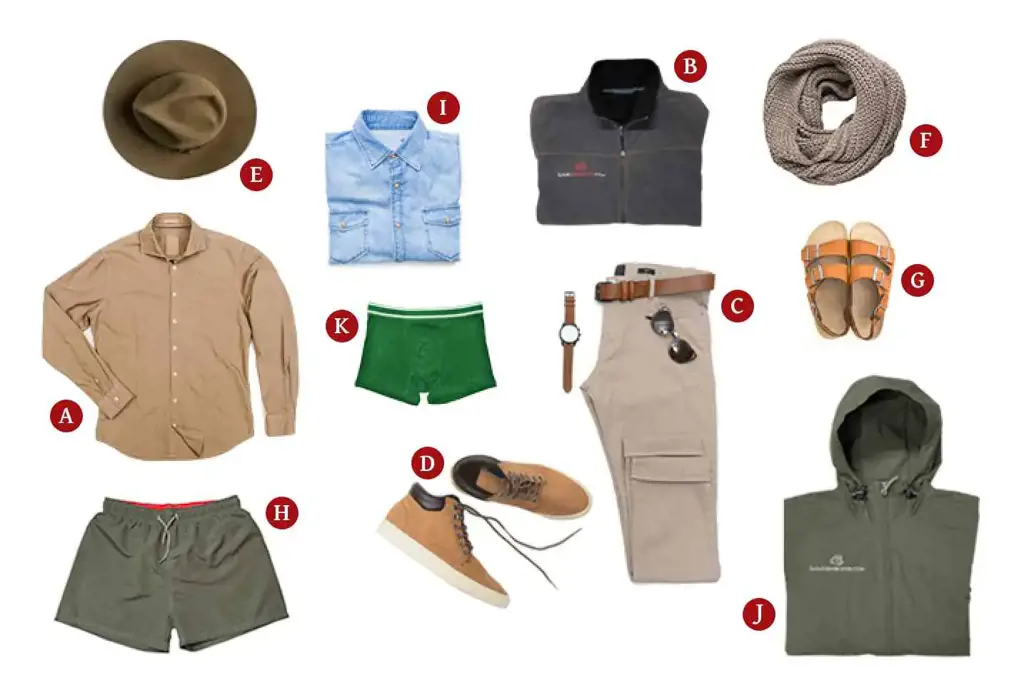
When preparing for a Kenya safari in August, it's important to pack appropriately to ensure a comfortable and enjoyable experience. While there are no specific items that you should avoid packing, there are some items that may not be necessary or useful on your safari adventure. Here are a few things you might want to leave behind:
- Heavy winter clothing: August is part of Kenya's dry season, with temperatures ranging from mild to warm during the day and cooler at night. It is unlikely that you will need heavy winter clothing on your safari. Instead, pack lightweight and breathable clothing such as t-shirts, shorts, and light trousers.
- Formal attire: Safaris are generally casual and relaxed, so there is no need to pack formal attire. Leave your fancy dresses or suits at home and opt for comfortable and practical clothing that is suitable for outdoor activities.
- Bulky or heavy equipment: While it may be tempting to bring along professional camera equipment or large binoculars, consider the weight and bulk of these items. Safaris often involve long drives on bumpy roads, and carrying heavy equipment can be cumbersome. Instead, invest in a lightweight and versatile camera or binoculars that can still capture great wildlife moments.
- Excessive toiletries: Safari lodges and camps usually provide basic toiletries such as soap, shampoo, and towels. Bringing your own large bottles of shampoo or conditioner may take up unnecessary space in your luggage. Consider bringing travel-sized toiletries or simply rely on what the accommodations provide.
- Too many electronics: While it's understandable to want to capture every moment of your safari on camera or stay connected with loved ones, it's important to strike a balance. Excessive electronics can be a distraction from fully experiencing the beauty of the African wilderness. Consider limiting the number of devices you bring and focus on immersing yourself in nature.
- Valuables or expensive jewelry: It's advisable to leave behind any expensive or sentimental items during your safari. While most accommodations have safes or secure storage, it's best to minimize the risk of loss or theft by leaving valuables at home. Remember, the real treasure of a safari is the unique wildlife and breathtaking landscapes.
When packing for your Kenya safari in August, prioritize comfort, practicality, and adaptability. Consider the weather conditions, the activities you will be participating in, and the limited luggage space often available on safari vehicles. By packing smartly and keeping unnecessary items to a minimum, you can fully enjoy the wonders of the Kenyan wilderness without any unnecessary burden.
Essential Items to Pack for Your Hospital Stay After Myomectomy Surgery
You may want to see also
Frequently asked questions
It is important to pack lightweight and breathable clothing for a Kenya safari in August. The temperatures can be quite high during this time, so wearing clothing made from natural fabrics like cotton or linen will help you stay cool and comfortable. It is also recommended to pack long-sleeved shirts and pants to protect yourself from insects and the sun. Don't forget to bring a hat, sunglasses, and sturdy walking shoes.
When it comes to accessories for a Kenya safari in August, there are a few essential items to consider. First and foremost, a good quality camera with extra batteries and memory cards is a must for capturing the incredible wildlife and landscapes. Binoculars are also important for spotting animals in the distance. Other useful accessories include a water bottle, sunscreen with high SPF, insect repellent, and a lightweight, waterproof backpack for carrying your essentials.
Yes, there are a few specific items you should consider bringing for a Kenya safari in August. Firstly, pack a good pair of binoculars to enhance your wildlife viewing experience. A good-quality flashlight or headlamp is also important for navigating around your campsite at night. It is also recommended to bring a power bank or extra batteries for charging your electronic devices, as electricity may be limited in some safari camps. Lastly, a sturdy water bottle with a built-in filter will come in handy for staying hydrated throughout your safari.







